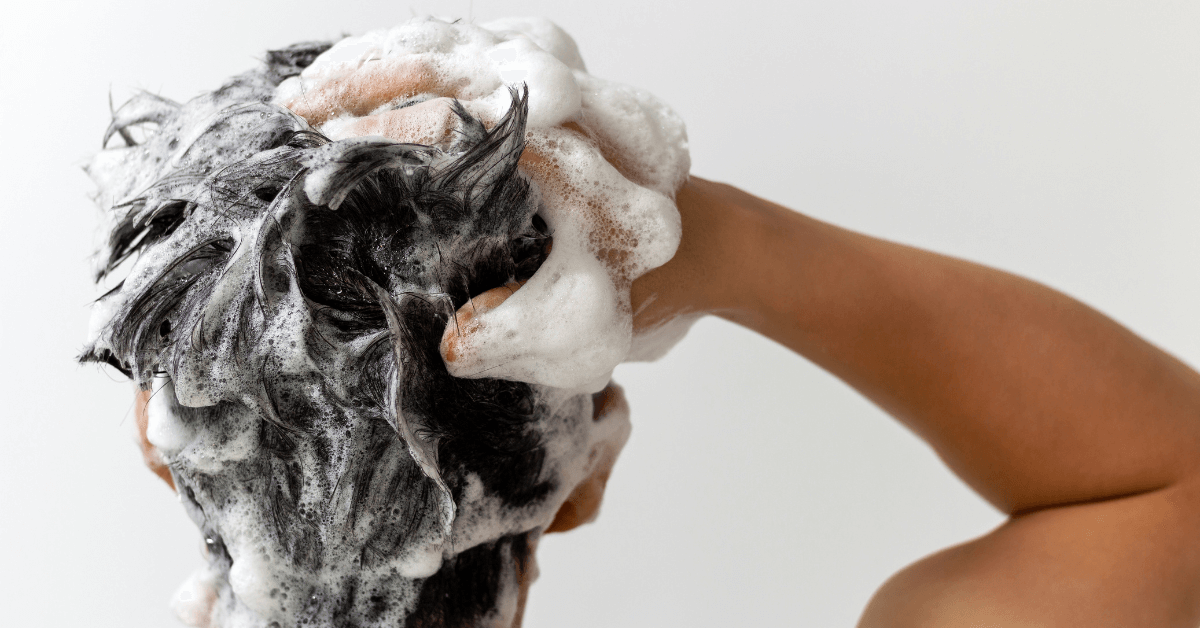Having an itchy and flaky scalp can be both uncomfortable and embarrassing. While this is a common issue faced by many, it’s essential to understand the possible causes and explore effective treatment options. Let’s look at some common causes and helpful remedies to bring relief and restore a healthy scalp.
Causes of Itchy & Flaky Scalp
- Dry Scalp: One of the leading causes of itchiness and flaking is a dry scalp. Factors like cold weather, excessive use of harsh hair products, or frequent washing can strip the scalp of its natural oils, leading to dryness and irritation.
- Seborrheic Dermatitis: This common scalp condition is characterized by redness, greasy scales, and persistent itching. It occurs due to the overgrowth of yeast on the scalp, leading to inflammation.
- Psoriasis: An autoimmune disorder that causes the rapid build0up of skin cells, psoriasis can affect the scalp, resulting in itchiness, redness, and flaky patches. This condition may be triggered by stress, certain medications, or genetic predisposition.
- Allergic Reactions: Allergies to hair products, such as shampoos, conditioners, or hair dyes, can cause scalp irritation, redness, and flaking. Identifying and avoiding the allergen is crucial in such cases.
- Scalp Infections: Fungal or bacterial infections, such as ringworm or folliculitis, can lead to an itchy and flaky scalp. These infections require medical attention and specialized treatment.
- Nutritional Deficiencies: low vitamin D, poor gut health and poor nutrition can result in worsening scalp health.

Treatment Options
- Moisturise: To combat dry scalp, use a gentle, moisturizing shampoo and conditioner. Avoid washing your hair too frequently, as it can strip away natural oils. Applying a nourishing oil, such as almond or olive oil, to your scalp and leaving it on for a few hours before washing can also help restore moisture.
- Medicated Shampoos: medicated shampoos containing ingredients like ketoconazole, salicylic acid, or coal tar can effectively treat seborrheic dermatitis and psoriasis. Follow the instructions on the product label and use them consistently for best results.
- Avoid Allergens: If you suspect an allergic reaction is causing your itchy and flaky scalp, switch to hypoallergenic or natural hair products and carefully read labels for potential irritants. Patch testing new products before applying them to your scalp is also recommended.
- Eat Well & Avoid Stress: more greens, more probiotic-rich foods and reducing your stress levels will help.
- Natural Remedies: Some individuals find relief through natural remedies. Aloe vera gel, tea tree oil, apple cider vinegar, rosemary water or chamomile tea rinses can help soothe the scalp and reduce inflammation. However, it’s essential to remember that what works for one person may not work for another, so experimentation may be necessary.
- Seek Professional Help: If your itchy and flaky scalp persists or worsens despite trying home remedies, it’s advisable to consult a dermatologist. They can accurately diagnose the underlying cause and prescribe appropriate medication or treatment options tailored to your specific needs.
An itchy and flaky scalp can be bothersome, but the good news is that there are various treatment options available. By understanding the causes and adopting the right approach, you can restore your scalp’s health and bid farewell to discomfort. Remember, consistency and patience are key when treating scalp issues.
If you need more support, book in with our dermatologist today by using our online booking engine or calling today.






